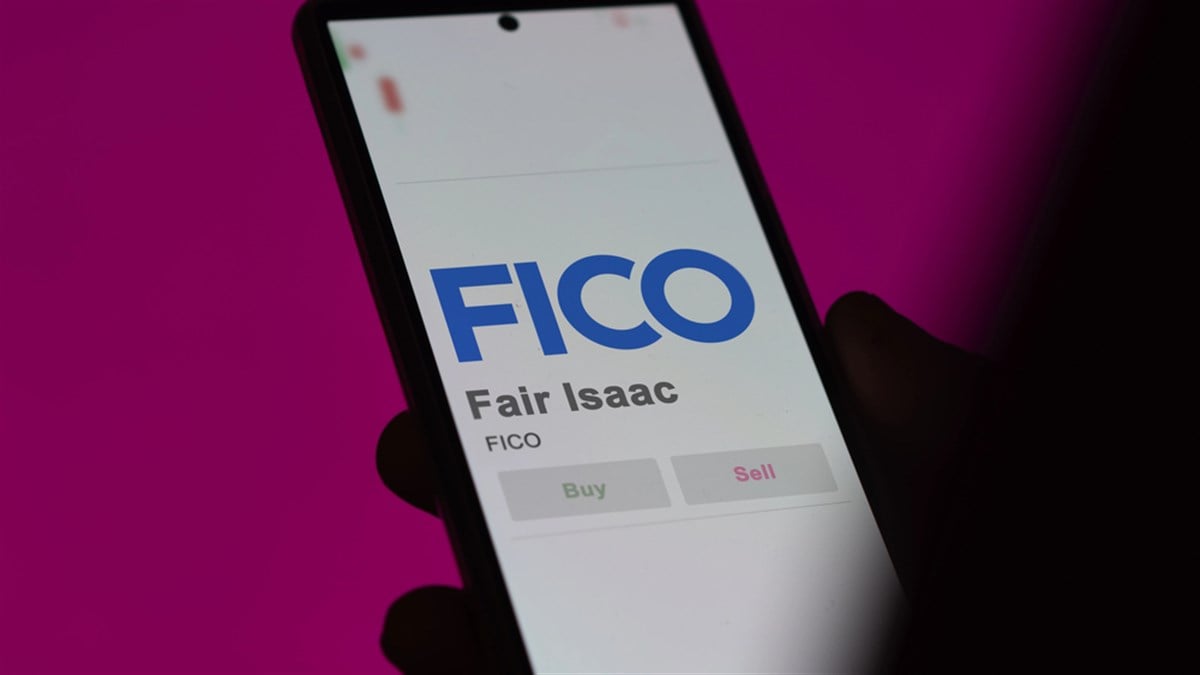FICO’s Big Dip Could Be the Best Buying Chance of the Year

Shares of Fair Isaac Corp. (NYSE: FICO) have taken shareholders for a ride last week, first rallying by over 15% and then selling off by nearly 10% in the span of a couple of days.
While the stock’s initial surge was driven by a genuinely disruptive announcement, the subsequent drop left some investors confused. The volatility is actually creating a prime dip-buying opportunity for those who understand what’s really going on.
The launch of Fair Isaac's Mortgage Direct License Program represented a massive shift in how lenders access credit scores. For the first time, lenders could bypass the traditional credit bureau structure and tap directly into FICO’s proprietary data and scoring systems. But days later, Fair Isaac’s finance sector competitor, Equifax Inc. (NYSE: EFX), launched a similar product targeting mortgage lenders, triggering the pullback in FICO’s stock.
But the market may be overreacting—and here's why.
FICO’s Mortgage Direct License: Cutting Out the Middleman
Fair Issac's Mortgage Direct License eliminates the need for intermediaries, lowering costs and giving lenders more control over how they assess borrower risk. Equifax’s counter-effort involves a similar structure using its VantageScore product, but the moat here is already wide. Most lenders and borrowers still structure loan terms around FICO scores.
FICO’s flexible pricing—either $10 per score or $4.95 plus $33 upon loan funding—caters to different loan types and borrower profiles, enhancing the product’s appeal and reinforcing the company’s edge.
Market Share and Margins Reinforce FICO’s Moat
The market's short-term reaction was caused by fear of competition. But a better way to assess the long-term implications of FICO’s move is to look at margins, market share, and investor confidence.
FICO holds a commanding 85% to 90% share of the mortgage credit scoring market, making it the de facto standard across the industry. This dominance not only reinforces its pricing power, it also signals deep institutional trust that’s difficult for competitors like Equifax to disrupt overnight.
That leadership shows up in the numbers: an over 80% gross profit margin, far above Equifax’s 56%. It’s not just about having more customers, it’s about having stickier, higher-value relationships that translate into durable earnings power.
Equifax, on the other hand, has only achieved a 56% gross profit margin during the same period, despite providing basically the same service.
This is where moats start to develop significant benefits for investors, as pricing power and sheer volume typically end up trickling down into higher margins and earnings power, boosting valuations.
Valuation and Analyst Sentiment Support the Bullish Case
Valuation metrics continue to favor FICO. Even after the pullback, the stock trades at a price-to-earnings ratio of 66.3x, a healthy premium over Equifax’s 46.9x. This indicates the market is clearly comfortable paying a higher price for a leader with sustainable advantages.
And that optimism doesn’t end at valuation multiples. Wall Street analysts maintain their consensus price target of $2,130 for FICO stock, implying a 25.7% upside potential from its current trading price. Barclays' Manav Patanik is even more bullish, setting a price target of $2,400, a whopping 41.5% above current levels.
Adding to that, there were $2.5 billion of institutional inflows into Fair Issac stock last quarter. AllianceBernstein was at the top of that list, boosting its position by 16.1% to a value of $387.4 million.
A Short-Term Dip, But A Long-Term Opportunity
Equifax is stepping into the ring, yes, but FICO still owns it. The recent dip isn’t about fundamentals; it’s a knee-jerk reaction to competition that’s unlikely to dent Fair Isaac’s dominance.
With a proven business model, strong margins, and overwhelming lender preference, FICO is positioned not only to recover but to push even higher.
For investors willing to look beyond the headlines, this week’s pullback offers a rare chance to own a wide-moat business at a discount.
Learn more about FICO


